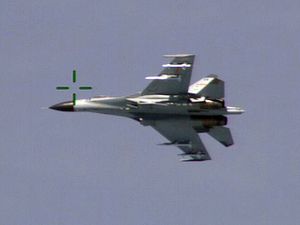The recent quarrel between China and the U.S. over the narrowly avoided midair incident between a U.S. spy plane and a Chinese fighter jet has again put China-U.S. relations under pressure. Most commentaries focus on the seeming danger of the Chinese fighter jet intercepting the U.S. spy plane. While it is correct to emphasize the potential danger of a possible collision between the two aircraft, we should not neglect the root cause of this near collision. The question of whether the Chinese fighter jet was dangerously close to the U.S. spy plane is a minor one. Rather, the key questions are: why was the U.S. spy plane near China’s Hainan island in the first place? What were the intentions of the U.S. spy plane? Was it there for peaceful purposes? Does freedom of navigation mean that you can harm other’s national security? Many scholars and pundits have offered three possible justifications for U.S. activities near Hainan, but a closer analysis reveals that none of them is a reasonable defense of U.S. actions.
The first justification many U.S. officials and scholars offer is that spying on China in international space does not violate international law. From a very strict legal point of view, spying activities might not violate international law since international law currently does not explicitly prohibit them (here and here). Still, this does not mean that it is ok to engage in such practices. The ultimate criterion should be whether such spying activities hurt or damage other countries’ national sovereignty or security. If yes, then such activities should be prohibited by international law and states should refrain from engaging in such activities in order to respect other countries.
The second often-mentioned justification is that the U.S. spy plane was simply exercising the freedom of navigation. This is misleading. According to the law of the sea, “freedom of over-flight” and “freedom of navigation” must be limited to peaceful purposes, as one legal study shows. Article 58 of UNCLOS states: “In exercising their rights and performing their duties under this Convention in the exclusive economic zone, States shall have due regard to the rights and duties of the coastal State and shall comply with the laws and regulations adopted by the coastal State in accordance with the provisions of this Convention and other rules of international law in so far as they are not incompatible with this Part.” Article 87 also states: “These freedoms [over-flight and navigation] shall be exercised by all States with due regard for the interests of other States in their exercise of the freedom of the high seas, and also with due regard for the rights under this Convention with respect to activities in the Area.”
Thus, the key issue is: are the U.S. spying activities for peaceful purposes? According to one study, the main purpose of the U.S. activities near Hainan is to spy on China’s strategic submarine force, which is of vital security interest for China. Furthermore, a number of states support China’s position that military activities within one’s exclusive economic zone (EEZ) threaten its national security.
A related, third argument put forward by some U.S. officials is that China is welcome to spy on the U.S. as well. This argument, on the surface, seems fair and transparent. But given the military technology gap between China and the U.S., this is like a big guy with an AK-47 telling a little guy armed with only stones and sticks, “You are welcome to attack me as well.” Thus, this argument is disingenuous at best.
In the end, the real intention of U.S. activities near Hainan is to spy on China’s strategic submarine force, thus posing a threat to China’s national security. The U.S. can continue to deny the threat it is posing to China, but it cannot deny the damage it has done to China-U.S. relations, particularly military-to-military relations. In this case, China had the right to intercept the U.S. spy plane, even aggressively, because from the Chinese perspective it was perhaps the only way to deter U.S. spying activities near Hainan.
What is going to happen remains to be seen. Both countries need to find a way to cool down the situation to avoid another incident like the EP-3 incident in 2001. A possible consequence is that China now will seriously consider setting up an air defense identification zone in the South China Sea.

































